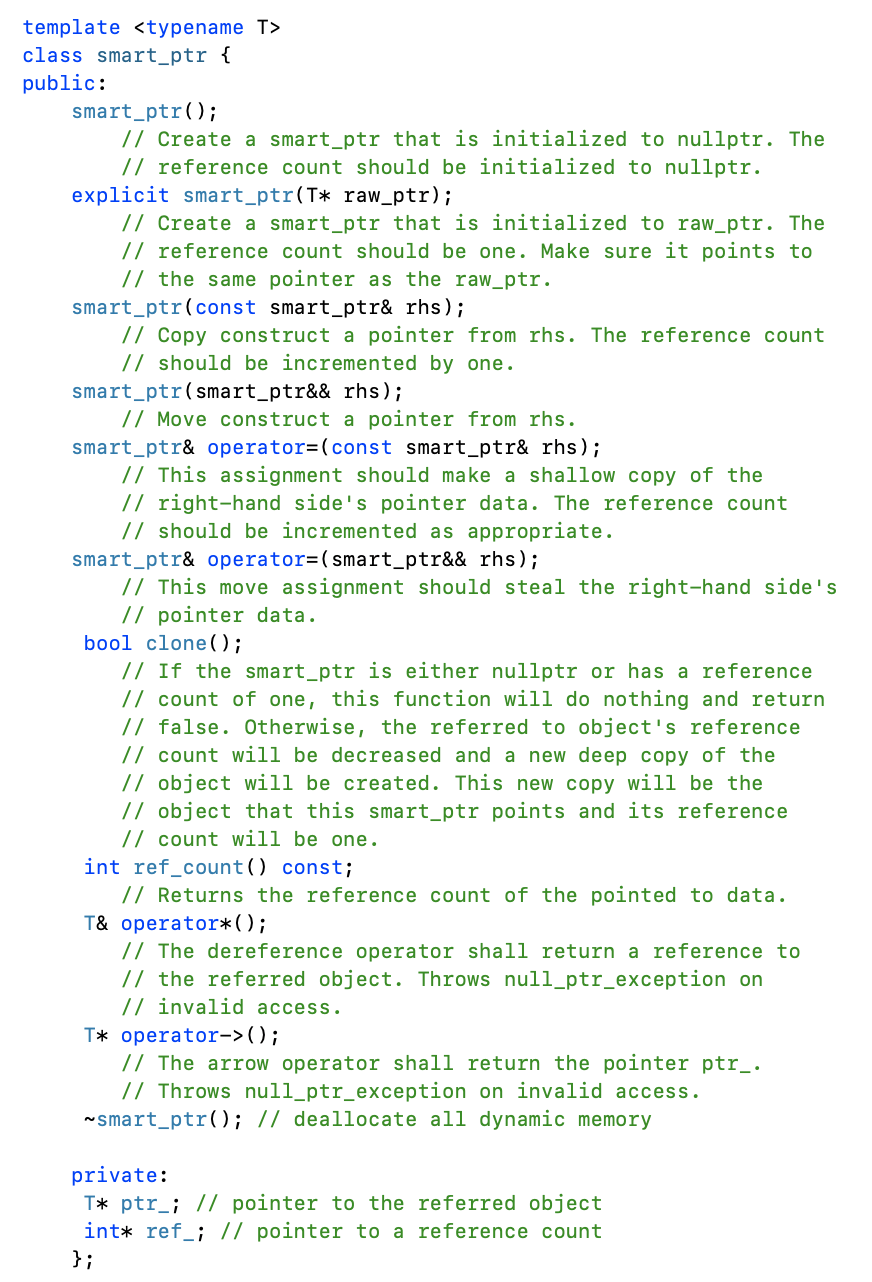Use original work!! or will downvote* INSTRUCTIONS: In this assignment, you will make your own smart pointer type. You will write the following class to develop a referenced counted smart pointer. You will also implement a few other member functions to resemble the functionality of an ordinary raw pointer. Basically, this is a problem of designing a single, non-trivial class and overloading a few pointer related operators. You may not use any of the STLs except for stdexcept, to do this, i.e., please dont try and use a shared_ptr to implement the class. You can start with this code, and you may add other member functions, if you want.
*Use original work!! or will downvote*
INSTRUCTIONS: In this assignment, you will make your own smart pointer type. You will write the following class to develop a referenced counted smart pointer. You will also implement a few other member functions to resemble the functionality of an ordinary raw pointer. Basically, this is a problem of designing a single, non-trivial class and overloading a few pointer related operators. You may not use any of the STLs except for stdexcept, to do this, i.e., please dont try and use a shared_ptr to implement the class. You can start with this code, and you may add other member functions, if you want.
C++ LANGUAGE
Only need smart_ptr.h file.
*Use original work!! or will downvote*

Trending now
This is a popular solution!
Step by step
Solved in 2 steps


